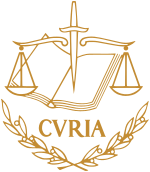Alcide de Gasperi Building
Alcide De GasperiBuildings and structures in Luxembourg CityLuxembourgian building and structure stubsOffice buildings completed in 1965Skyscraper office buildings ... and 1 more
Skyscrapers in Luxembourg

The Alcide de Gasperi Building is a skyscraper in Luxembourg City, in southern Luxembourg. At 77 m (253 ft) tall and with 23 floors, it was the tallest building in Luxembourg. It is located in Kirchberg, in the north-east of the city.
Excerpt from the Wikipedia article Alcide de Gasperi Building (License: CC BY-SA 3.0, Authors, Images).Alcide de Gasperi Building
Avenue John F. Kennedy, Luxembourg Kirchberg
Geographical coordinates (GPS) Address Website Nearby Places Show on map
Geographical coordinates (GPS)
| Latitude | Longitude |
|---|---|
| N 49.618333333333 ° | E 6.1436111111111 ° |
Address
European Convention Center Luxembourg
Avenue John F. Kennedy
1873 Luxembourg, Kirchberg
Luxembourg
Open on Google Maps










